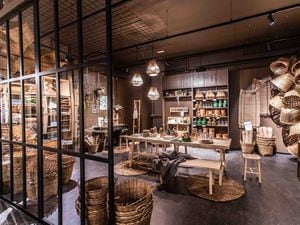Will food quality suffer after Brexit?
Could Brexit make us think a little more deeply about our food? Prof Ralph Early of Harper Adams University says we should think very carefully before abandoning EU food standards.

Do people give much thought to the food they buy? Most people will answer yes; thinking that as customers they do think for instance about what they buy to stock their cupboards, prepare meals and feed families. But consider for a moment, thinking about the food we need is not the same as thinking about what a product actually consists of, where it originated and, importantly, whether it’s safe to eat. We tend to assume the food we buy is authentic and safe. The reason we don’t think too deeply on the matter is because we trust food businesses to act for our best interests. Generally we take for granted the quality and safety of the food offered to us and in being able to do this, we are indeed privileged. But is it a privilege some of our politicians would happily trade away?
Britain’s food system is part of an international food system. Each year millions of tons of raw food materials and food products are imported, particularly from EU countries. They make up the gap in our domestic food production because Britain is only around 60 per cent self-sufficient. In fact many of the products we routinely enjoy are not produced in our country. Take a look at supermarket shelves and you will see that many are imported and very many come from our nearest trading partners in the EU. But this may change with Brexit. Certainly, some of the Brexit models under discussion could result in foodstuffs to which we are accustomed not being available in the future if we cease to trade with EU supplier countries. So, where would this leave us as a nation that needs to make up a 40 per cent shortfall in our food supply, especially with imported products that we do not and cannot make ourselves?
Eurosceptic politicians say the answer is easy. We will simply trade with the world. We will import what we need from America, Australia, New Zealand, even India and China: countries thousands of miles away, not just a short journey across the Channel.
The very concept of replacing food imports from European countries with products from the other side of the world raises many questions about practicality, added transport costs passed onto consumers and negative effects on global climate change. We might also ask how the nature of our food might change and how it might affect our food culture. For instance, if instead of buying European food products we replace them with American foods, would our food culture become even more Americanized? Would the obesity and diabetes problem Britain already has worsen to American levels?
The British farming and food industries provide many of our staple foodstuffs and in terms of filling the 40 per cent gap some suggest that our indigenous food businesses could compensate for the loss of EU imports. The principle ‘Buy British’ is certainly admirable and loyalty to British food producers makes sense as we should we want to sustain our own farming and food industry. However, the British food industry can’t produce all that we want to eat, not just in terms of quantity but also in terms of variety. And ominously the fly in the ointment when it comes to international trade will be the issue of food standards, especially when one hears that US President Donald Trump has told Britain’s PM Theresa May that Britain must abandon ‘unjustified’ food standards – meaning high EU standards – if any Brexit trade deal is to be agreed between the two countries.
British food standards are of the best in the world, not just because we are British, but because we have been a member of the European Union since 1973. Trade between countries is predicated on the agreement of standards and Britain trades easily and efficiently with 27 EU countries because we have mutually agreed standards. We also trade with 50 other countries with which the EU has free-trade agreements, so any claim that Britain must leave the EU to enjoy free trade under the World Trade Organisation (WTO) is a myth.
The EU has been very good at raising standards for the common good, which has been good for British citizens in matters of food quality and safety. Cessation of trade with the EU in order to trade by WTO rules would bring many complications, and not least the need to agree new food standards with new trading partners, which can take a very long time.
As consumers we rely on food manufacturers, retailers and public health authorities to act for our common good in matters of food quality and safety. Central to the Brexit debate has been the notion of a ‘bonfire of the regulations’. If the food regulations that have helped us trade with EU members and other countries are sacrificed on the altar of free-trade could we then face a brave new world of lower food standards existing specifically to validate Brexit and the trading ambitions of politicians? Essentially, might we be forced to sacrifice food quality and safety for political expediency? Perhaps only time will tell. But if it happens, might we then all need to start thinking much more carefully about the food products we buy, where they originated, what’s in them and whether or not they are truly safe to eat?





